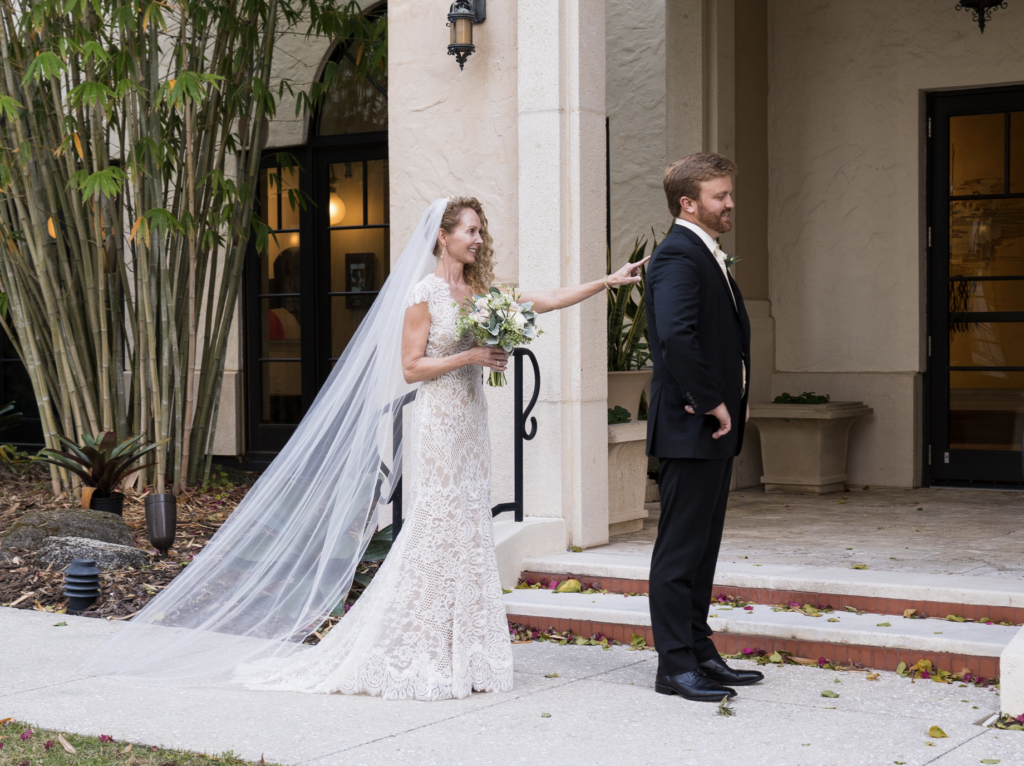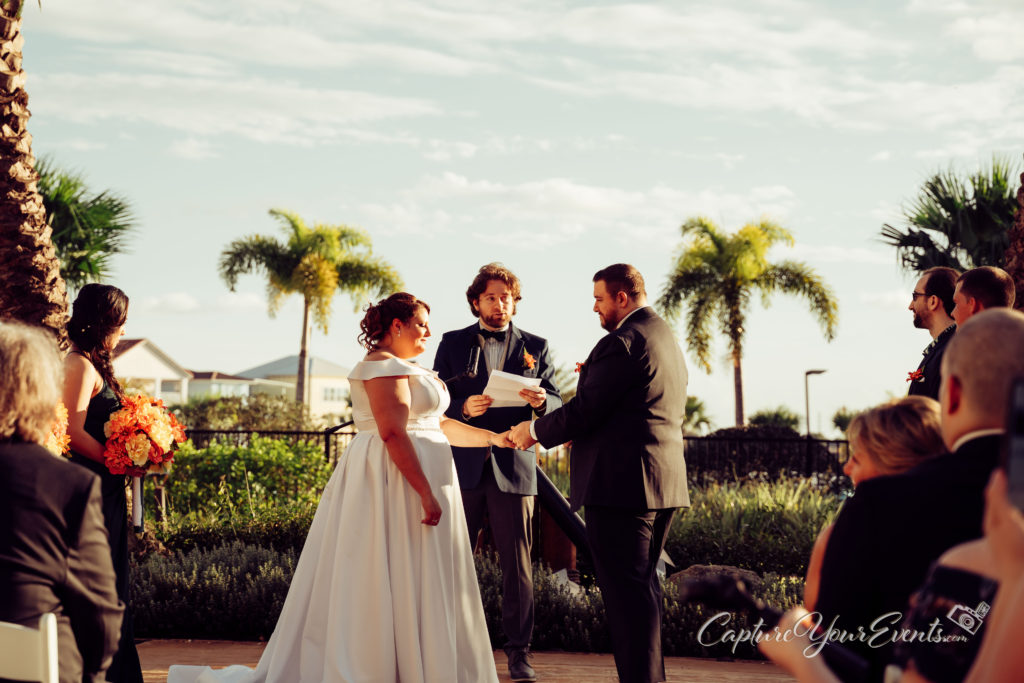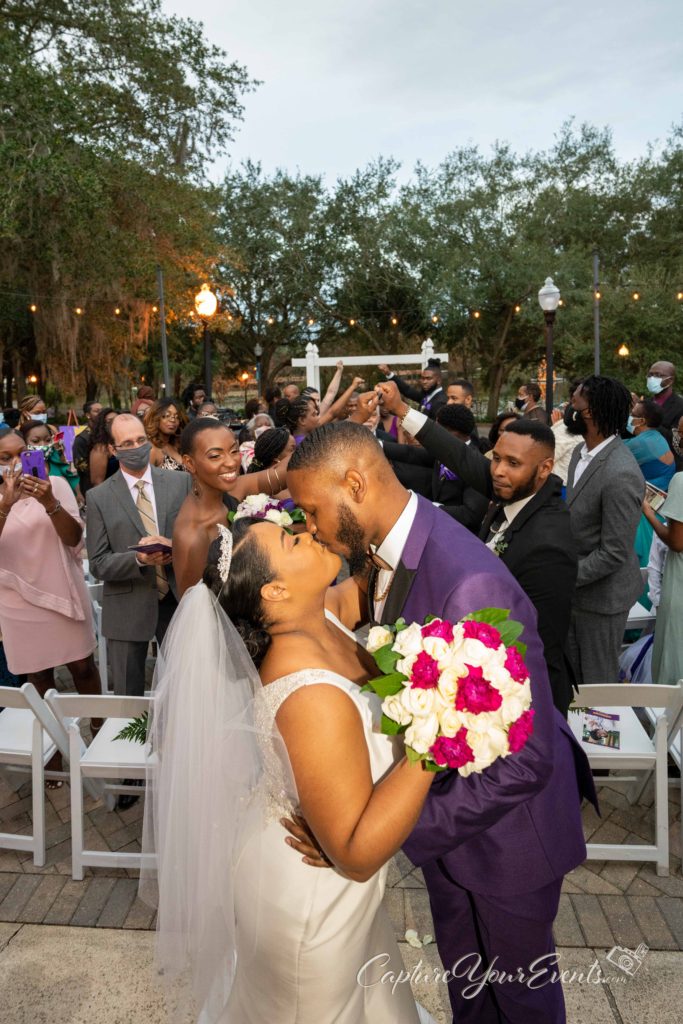February Blog Series
Interviewing your vendors...
Photography.
Choosing the right wedding photographer is one of the most important parts of wedding planning. After all, your wedding photography will not only capture the important details of your big day, but last long after the cake, flowers, and music are gone. Future generations will gaze upon your wedding photos with wonder, so hiring someone you trust, and whose approach fits your style, is a serious task. Read on for our roundup of 20 questions to ask your wedding photographer before you sign on the dotted line.
1. Do you have our wedding date available?
While it might seem like an obvious question, it’s easy to get swept up in a photographer’s work before confirming their schedule is free. Since it’s not unheard of for top photographers to be booked a year in advance, the sooner you verify their availability the better.
2. How long have you been shooting weddings FULL TIME, and what inspired you to start working in the field?
For some photographers, capturing a couple’s special day is a longtime labor of love. For others, it’s a side gig they dabble in. That’s not to say a part-time photographer can’t be talented (and they’ll definitely cost less than someone dedicated to the art). But hiring a professional wedding photographer is an excellent investment, so get some background on your prospects in terms of experience and inspiration, and see whose stories you connect with most.

3. How would you describe your photography style?
There’s a range of well-known wedding photography styles, so you need to decide which one fits your desired aesthetic and find a photographer who specializes in it. Here’s a rundown of the most popular styles:
- Traditional. It’s a lot like your parents’ wedding photography with lots of timeless, posed photos.
- Photojournalism. It documents the day as it happens, and captures more candid moments than poses.
- Fine art. It relies heavily on specialized lighting, unique framing, and distinctive composition.
- Dramatic. It focuses on a dark, moody aesthetic with lots of shadows and complex lighting techniques.
4. How would you describe your working style?
Some photographers have a working style that’s subtle and unobtrusive, while others are assertive so they can get the best shots. Other variances include how much direction they give, their willingness to work with a shot list, and how they tend to interact with a videographer. You want to be comfortable with the person you spend your day with, and an overview of how a photographer works can help you decide if they’re a match.
5. Are you the photographer who will shoot our wedding, or will someone else be assigned?
Many photographers have associates they employ to maximize the number of weddings they can accommodate.
6. If a photographer is assigned, how do I know they will produce the same work?
While most full time professional photographers have associates they employ (and this can be great for stability or in case of emergency or illness) You want to ensure that they study, work and communicate together to be all on the same page as far as style.
7. Can we see a full gallery?
While you might be excited by the images on a photographer’s website, the featured photographs often represent the best shots taken at multiple events — not necessarily from a full wedding. You want to judge a photographer’s work based on how they shoot weddings from beginning to end, so ask to see full galleries of individual events.
8. Have you ever shot at our wedding venues before?
It’s not necessarily a deal-breaker, but a photographer who has experience shooting at your ceremony or reception venue will know the best spots for photos and how to work with the lighting. Plus, you’ll get to see a full gallery of a wedding that took place there. It can be a big advantage, so be sure to ask about their familiarity with your wedding venues.


9. Can you provide references?
As mentioned previously, you likely came across your prospects from recommendations, but it’s always good to get a range of feedback and ask direct questions to clients who’ve come before you.
10. Are engagement photos a part of the package, or are they an additional fee?
Some couples want engagement photos as part of their package, while others want a commitment-free opportunity to test a photographer’s talents. Ask about your options ahead of time, as packaged photos tend to maximize value while standalone shoots offer the freedom to switch professionals.
11. How many hours of coverage are included?
Coverage refers to the total time a photographer spends shooting on the day of your wedding, and the cost isn’t always included in the package. You also want to determine if there’s a separate travel fee for the time it takes to journey to your venue(s), especially if you’re hosting a destination wedding.
12. Do you recommend having a second photographer, and how much more will it cost?
The shots in the event galleries you viewed may have been done by more than one photographer. If you want a similar look, you could need a second photographer, so be sure to inquire about the costs before you commit.
13. What are your procedures and fees if the night runs over?
Photographers are often willing to stay beyond their contracted hours to capture an event that’s running behind schedule, but you can definitely expect them to charge for the overage. Find out upfront what the potential costs are, so you’re not surprised by a penalty.
14. Do you bring your own lighting?
Weddings present many different lighting scenarios, and whether any equipment is necessary depends on different factors. This includes indoor vs. outdoor venues, the time of day the wedding events take place, and the couple’s style preferences. Determine under which circumstances your prospects are prepared to work, and if they have lighting equipment solutions to any challenges that may arise.
15. What type of equipment do you shoot on and why?
Cameras are not all created equal… each photographer will have a reason for why the use what the use. Event though you may not know too much about the equipment they list they should hesitate to rattle off the reasons they choose such equipment and this question can tell you leaps and bounds about their professionalism and passion. Key words in professional wedding photography: Full frame Camera, Dual Memory slots, DUAL Camera Bodies & Off camera flash…
16. Do you have backup equipment?
Cameras can break, lenses can crack, and batteries can die, so you want your photographer to be as prepared as possible. Confirm they have a full set of backup tools on hand so an emergency can be handled quickly, with grace, and with minimal interruption.
17. Do you have a backup plan in case you need to cancel?
A photographer’s cancellation can wreak havoc on a wedding. Before you place your faith in a professional, find out how they’d handle it if they can’t fulfill their contract. (this is where going with a full time team is EXTREMELY valuable)
18. What is your turnaround time for proofs, prints, and files?
Timelines vary between photographers and are affected by retouching practices and format (film vs. digital). If timing is a big consideration for you, find out what to expect in advance.
19. What are your policies on file ownership and sharing?
While it may be surprising, the person who presses the shutter on the camera legally owns the rights to the images — even if you’re the subject and paid for them. If you want exclusive ownership, you need to purchase the rights, so ask ahead of time if they’re willing to sell. Otherwise, accept that the photographer can freely share or use your photos in print and online, including on social media.
20. Do you have liability insurance?
Accidents happen. If a guest trips over some photography equipment or a photographer breaks a window with a wayward light, you don’t want to be held responsible for medical fees or repairs. Confirm your potential photographer has liability insurance, and ask about the type of coverage the policy includes.
